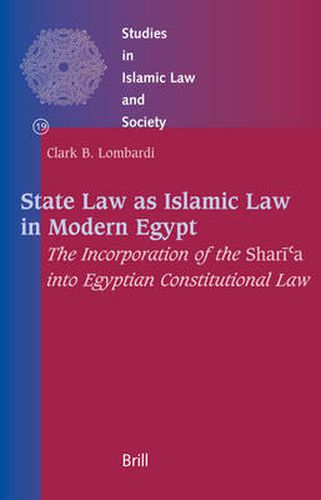Readings Newsletter
Become a Readings Member to make your shopping experience even easier.
Sign in or sign up for free!
You’re not far away from qualifying for FREE standard shipping within Australia
You’ve qualified for FREE standard shipping within Australia
The cart is loading…






This volume explores the decision by the government of Egypt in the 1970s to constitutionalize Islamic shari'a and discusses its impact on Egypt’s constitutional jurisprudence.
The author, who is trained in Islamic intellectual history and comparative law, begins by examining the evolution of Sunni Islamic legal theory and describes competing theories of Islamic law that co-exist in modern Egypt. The book then explores how the Supreme Constitutional Court of Egypt has developed its own approach to interrpreting shari'a-one that permits the Court to argue that shari'a principles are consistent with international human rights norms. The book concludes with a discussion of the public reception of the Court’s theory. This book will be essential for anyone interested in the evolution of Islamic law, the development of constitutional thought in the Middle East, or the relationship between Islam and human rights.
$9.00 standard shipping within Australia
FREE standard shipping within Australia for orders over $100.00
Express & International shipping calculated at checkout
This volume explores the decision by the government of Egypt in the 1970s to constitutionalize Islamic shari'a and discusses its impact on Egypt’s constitutional jurisprudence.
The author, who is trained in Islamic intellectual history and comparative law, begins by examining the evolution of Sunni Islamic legal theory and describes competing theories of Islamic law that co-exist in modern Egypt. The book then explores how the Supreme Constitutional Court of Egypt has developed its own approach to interrpreting shari'a-one that permits the Court to argue that shari'a principles are consistent with international human rights norms. The book concludes with a discussion of the public reception of the Court’s theory. This book will be essential for anyone interested in the evolution of Islamic law, the development of constitutional thought in the Middle East, or the relationship between Islam and human rights.